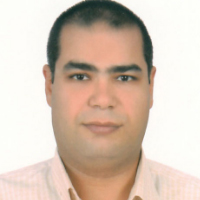Co-extract mixture from Strophanthus hispidus (roots) and Aframomum meleguta (seeds) show phytochemical synergy in its anti-inflammatory activity
Published on: 11th December, 2019
OCLC Number/Unique Identifier: 8500735034
Background: Combination of extracts from multiple plants are typically used in ethnomedicine to putatively offer more potent chemotherapeutic and chemopreventive effects than that of individual extracts from single plants. Aqueous extracts from two multipurpose plants Strophanthus hispidus (roots) and Aframomum meleguta (seeds) are topically co-administered in the nasal cavities for the ethnomedicinal management of chronic sinusitis.
Aim: This study assessed the potential phytochemical synergy between constituent extracts of Strophanthus hispidus (roots) and Aframomum meleguta (seeds) in its anti-inflammation, anti-microbial and anti-oxidant effects.
Methods and Materials: Broth dilution assay assessed anti-microbial activities. DPPH radical scavenging assay examined the scope of anti-oxidant activities and inhibition of carrageenan-induced 7-day old chick feet oedema revealed anti-inflammatory activities.
Results: Anti-microbial activities of individual plant extracts in broth dilution assay showed comparable potency to that of the co-extract mixture. Similarly, individual extracts showed levels of DPPH radical scavenging activities in anti-oxidant assay that was comparable to those found for the co-extract mixture. In contrast to these two effects, inhibition of carrageenan-induced 7-day old chick feet oedema revealed an anti-inflammatory activity evoked by co-extract mixtures that was greater than the sum of the individual potencies of the two extracts.
Conclusion: The potential phytochemical synergy of the two plants extracts in its anti-inflammatory response largely validates ethnomedicinal practice and generally confirms growing literature reports that ascribe the net pharmacological activities of herbal extracts to the combined multi-activities of unique phytochemical entities at multiple target sites.




